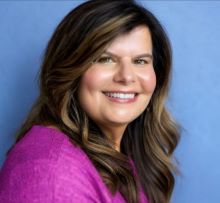21 Types of Nurses: A Guide to Nursing Specialties

When you decide to go into nursing, you’ve got a lot to consider, from the nursing schools to attend, degrees to pursue, and types of nurses you can become. Nursing specialties are seemingly endless, so if you’re wondering, “What type of nurse should I be?” we’ve compiled a list of nursing careers that range from cardiac and NICU to home health and travel nursing — and just about everything in between. Check out the common duties, educational requirements, and salaries for different types of nursing jobs.
Note: For all of these job titles, you must first become a registered nurse. This means that you must complete an accredited nursing program to obtain either an associate degree in nursing (ADN) or a bachelor’s degree in nursing (BSN). Then you must have a passing score on the NCLEX exam. After that, you can apply to your state board of nursing for your RN license. It’s also strongly recommended after gaining clinical experience in a subspecialty to obtain certification or credentials in that area for career advancement.
21 Types of Nurses
- Burn Care Nurse
- Cardiac Care Nurse
- Certified Nurse Midwife
- Certified Registered Nurse Anesthetist
- Emergency Nurse
- Forensic Nurse
- Geriatric Nurse
- Home Health Nurse
- Hospice Nurse
- Labor and Delivery Nurse
- Neonatal Intensive Care (NICU) Nurse
- Nurse Educator
- Nurse Practitioner
- Oncology Nurse
- Operating Room Nurse
- Orthopedic Nurse
- Pediatric Nurse
- Psychiatric Nurse
- Substance Abuse Nurse
- Telemetry Nurse
- Travel Nurse
1. Burn Care Nurse
What You’d Do as a Burn Care Nurse: A burn care nurse works in a hospital burn unit treating patients who have been burned in a house or building fire, or by hot water, oil, chemicals, or electricity. Along with dressing and caring for patients’ wounds, you’ll give emotional support and teach family and caregivers how to continue care at home.
Typical Requirements: ICU or trauma center experience. You can take training in advanced burn life support. The Board of Certification for Emergency Nursing (BCEN) is developing a specialty certification: Certified Burn Registered Nurse (CBRN).
Median Salary: The average salary for a burn care nurse is $31.58 per hour/$65,688 per year.
2. Cardiac Care Nurse
What You’d Do as a Cardiac Care Nurse: Heart disease is the leading cause of death in the U.S., which means cardiac care nurses are kept busy. As a cardiac care nurse, you take care of patients with heart disease, coronary artery disease, heart failure, and those recovering from bypass surgery. You work hands-on with patients and have lots of variety in your work with different daily tasks, situations, and challenges. Learn more about working in the CVICU or in a cath lab as a nurse.
Typical Requirements: After approximately two years of acute care experience with 875+ hours of direct patient cardiac RN experience, you are eligible for cardiac RN certification, which is encouraged. Some employers often require a certification in Basic Life Support and Advanced Cardiac Life Support. Learn more about how to become a cardiac care nurse.
Median Salary: The median salary for a cardiac care nurse is $32 per hour/$62,005 yearly.
3. Certified Nurse Midwife
What You’d Do as a Certified Nurse Midwife: A certified nurse midwife is an advanced practice nurse that cares for pregnant women who prefer holistic care and want to give birth at home or in a specialized birthing environment. Your work begins with prenatal visits and continues through labor, delivery, and postpartum counseling. Duties can involve diagnostic testing, helping with newborn care, and educating patients about nutrition. Many of these specialists decide to open their own practices in states that allow independent nurse midwives.
Typical Requirements: MSN or DNP degree in Nurse Midwifery, and board certification as a nurse midwife. Learn more about how to become a nurse midwife.
Median Salary: The average salary for a certified nurse midwife is $63.26 per hour/$131,570 per year. For more insight on salary, search for CNM jobs on IntelyCare
4. Certified Registered Nurse Anesthetist (CRNA)
What You’d Do as a CRNA: CRNA is a highly skilled and complex specialty, and these professionals are among the highest paid nurses. You administer anesthesia and provide pain management and related care before, during, and after surgery.
Typical Requirements: You need a minimum of one year in an acute care setting, an MSN or Doctor of Nursing Practice (DNP) in Nurse Anesthesiology, and a nurse anesthetist certification. Learn more about how to become a CRNA.
Median Salary: The average salary for a CRNA is $104.98 per hour/$214,200 per year. For more insight on salary, search for CRNA jobs on IntelyCare.
5. Emergency Nurse
What You’d Do as an Emergency Nurse: Similar to trauma nurses, emergency nurses work in a hospital emergency department (ED) or urgent care center, treating patients with a wide variety of critical illnesses and injuries. As with a number of nursing specialties, it’s a fast-paced job requiring ultra-sharp decision-making skills.
Typical Requirements: BLS, ACLS, PALS (pediatric advanced life support), and previous nursing experience are must-haves. To qualify for emergency nurse certification (CEN), which is recommended, you need approximately one to two years of ED experience. Learn more about how to become an ER nurse.
Median Salary: The median salary for an ED nurse is $37 per hour/$78,000 per year. For more insight on salary, search for ER nurse jobs on IntelyCare.
6. Forensic Nurse
What You’d Do as a Forensic Nurse: Forensic nurses collect biological evidence for criminal investigations to determine someone’s cause of death or to provide evidence of sexual assault. They can also testify in court, and provide emotional support while assessing patients.
Typical Requirements: After passing your NCLEX-RN exam and gaining some experience as an RN, you can obtain certification as a sexual assault nurse examiner, complete an advanced forensic nursing certification program, or specialize as a nurse coroner. Learn more about how to become a forensic nurse.
Average Salary: The average forensic nurse salary is $133,228 per year.
7. Geriatric Nurse
What You’d Do as a Geriatric Nurse: Geriatric nursing jobs are expected to grow by 19–26% in the next 10 years. This increase is due to the aging population that wants to stay healthy as they live longer and for those who develop long-term illnesses, including cancer and Alzheimer’s disease. As a geriatric nurse, you care for older patients, help meet their basic needs, and administer advanced treatments for physical and mental conditions.
Typical Requirements: You can become a geriatric nurse with your degree and RN license. After gaining experience, you can pursue Gerontological Nurse Board Certification (GERO-BC), which is recommended. Learn more about how to become a geriatric nurse.
Median Salary: The median salary for a geriatric nurse is $37 per hour/$78,200 per year.
8. Home Health Nurse
What You’d Do as a Home Health Nurse: In this role, you’d go to patients’ homes when patients are sick, injured, or are no longer able to independently perform activities of daily living. These kinds of nurses typically administer medications, provide catheter and wound care, and supervise LPNs and home health aides.
Typical Requirements: You can become a home health nurse with your degree and RN license. Learn more about being a home health nurse.
Median Salary: The average salary for a home health RN is $42.04 per hour/$87,430 per year. For more insight on salary, search for home health nurse jobs on IntelyCare.
9. Hospice Nurse
What You’d Do as a Hospice Nurse: Hospice nurses care for patients at the end of their life. These nurses provide interventions to relieve symptoms and make patients comfortable. Example interventions include administering medication, managing pain, monitoring vital signs, providing crisis care, and educating family members. This care can be provided outpatient, in the patient’s home, or inpatient, in a facility.
Typical Requirements: To get started, you will need to have an active RN license. Depending on your employer, two to three years of acute care nursing experience may also be required. Learn more about how to become a hospice nurse.
Median Salary: The median salary for a hospice nurse is around $41 per hour/$84,433 per year. For more insight on salary, search for hospice nurse jobs on IntelyCare.
10. Labor and Delivery Nurse
What You’d Do as a Labor and Delivery Nurse: This group of nurses cares for expectant mothers before, during, and after birth. In this role, you also assist doctors with birth and communicate vital information to the birthing team. Additionally, you calm and support the parents, family members, and/or support person in the delivery room.
Typical Requirements: You need to complete an obstetrics rotation as part of your degree program. Some employers accept new grads, but others require previous nursing experience. Learn more about how to become a labor and delivery nurse. If this specialty piques your interest, you might also consider becoming an OB-GYN nurse or an IVF nurse.
Median Salary: The median labor and delivery nurse salary is $39 per hour/$81,010 per year. For more insight on salary, search for labor and delivery nurse jobs on IntelyCare.
11. Neonatal Intensive Care Unit Nurse (NICU)
What You’d Do as a NICU Nurse: This is one of the most demanding nursing specialties. As a nurse in the NICU, you are part of a team that provides immediate care for ill and premature newborns. You perform medical procedures and administer tests, chart progress, and document vital signs. You also provide hands-on care to change diapers and feed infants. You will also attend high-risk deliveries.
Typical Requirements: After obtaining experience as a neonatal ICU nurse, certification for Neonatal Intensive Care Nursing (RNC-NIC) or Critical Care Registered Nurse-Neonatal is recommended. Learn more about being a NICU nurse.
Median Salary: The median pay for a NICU nurse is $35.50 per hour/$80,155 per year.
12. Nurse Educator
What You’d Do as a Nurse Educator: A nurse educator is a registered nurse who provides high-quality, specialized education to other nurses, nursing students, or healthcare professionals. They typically work in universities, technical schools, community colleges, and hospitals.
Typical Requirements: In addition to an active RN license, you will need a master of science in nursing (MSN) degree. Clinical nursing experience is always recommended and sometimes required.
Median Salary: The average salary for a nurse educator is $86,530 per year. For more insight on salary, search for nurse educator jobs on IntelyCare.
13. Nurse Practitioner
What You’d Do as a Nurse Practitioner: A nurse practitioner is an advanced practice registered nurse (APRN) that provides primary and specialty care, diagnosing, treating, and counseling patients. As an NP, you can prescribe medications, and depending on your state, you may be able to open an independent practice. Nurse practitioners fill the gap in primary care healthcare professionals, especially in outpatient centers and rural locations. You can also be an NP specializing in targeted types of nursing, including pediatrics, women’s health, and psychiatry.
Typical Requirements: You need an MSN degree and board certification. Learn more about how to become a nurse practitioner.
Median Salary: The average salary for a nurse practitioner is $61.78 per hour/$128,490 per year. To get more insight on salary, search for nurse practitioner jobs on IntelyCare.
14. Oncology Nurse
What You’d Do as an Oncology Nurse: Oncology nurses provide their expertise and support to cancer patients and are members of cancer care teams. You assess patients, administer treatments, and communicate with all team members. These types of nurses often answer questions, address symptoms, and validate the emotional reactions of patients and their loved ones.
Typical Requirements: For you to become an oncology nurse, employers prefer one to three years of acute care nursing experience unless they offer a program for new grads. For increased career mobility and compensation, you can earn chemotherapy certification. Learn more about how to become an oncology nurse.
Median Salary: The median salary for an oncology nurse is $36.40 per hour/$82,555 per year.
15. Operating Room (OR) Nurses
What You’d Do as an OR Nurse: These nurse types are also called surgical nurses or perioperative nurses. As an OR nurse, you care for patients before, during, and after operations. You set up the operating room and manage surgical instruments. During operations, you perform tasks such as applying bandages and controlling and maintaining patient bleeding.
Typical Requirements: You’ll first need the minimum of 2,400 nursing experience with 1,200 hours of a peri-operative experience nurse to qualify for preoperative nurse certification (CNOR), which is recommended. Many employers require one to two years of nursing experience, preferably in acute care, to apply for an OR nurse position. Learn more about the requirements for OR nursing.
Median Salary: The median salary for an OR nurse is $37 per hour/$81,630 per year. To get more insight on salary, search for OR nurse jobs on IntelyCare.
16. Orthopedic Nurse
What You’d Do as an Orthopedic Nurse: Orthopedic (also spelled orthopaedic) nurses take care of patients with arthritis, bone fractures, joint replacements, and anything else to do with musculoskeletal diseases and disorders. You help patients recover and regain mobility and strength by performing therapeutic treatments, putting on casts, and assisting with surgery. You also teach patients and their caregivers how to heal and recuperate once they are home.
Typical Requirements: Your degree and RN license, plus state requirements, can get you started. Once you have two years of experience and have worked 1,000 hours as an orthopedic RN, you are eligible to apply for certification as an orthopedic nurse.
Median Salary: The median salary for an orthopedic nurse is $60 per hour/$124,032 per year.
17. Pediatric Nurse
What You’d Do as a Pediatric Nurse: A pediatric nurse cares for babies, toddlers, children, preteens, and teenagers. They can work in doctor’s offices, public health departments and clinics, specialty care centers, schools, and hospitals. Typical duties include administering immunizations, screening for developmental delays, providing nutrition education, assessing parent-child interactions, and screening for sight or hearing impairments.
Typical Requirements: You’ll need an active RN license to work as a pediatric nurse. A pediatric nursing certification (CPN) is recommended. Depending on where you work, you may also be required to have a pediatric advanced life support (PALS) certification. Learn more about how to become a pediatric nurse.
Median Salary: The median salary for a pediatric nurse is about $38 per hour/$79,300 per year. To get more insight on salary, search for pediatric nurse jobs on IntelyCare.
18. Psychiatric Nurse
What You’d Do as a Psychiatric Nurse: These nurses address mental health conditions in inpatient and outpatient settings. They administer medications and monitor for side effects. As a psychiatric nurse, you also educate patients and families, mediate mental health crises, and communicate with the rest of the care team.
Typical Requirements: These nurses must acquire their BSN, then pass their NCLEX-RN. You can also obtain a psychiatric-mental health nursing certification. Learn more about how to become a psychiatric nurse.
Average Salary: The median psychiatric nurse salary is $40 per year/$84,200 per year. To get more insight on salary, search for psych nurse jobs on IntelyCare.
19. Substance Abuse Nurse
What You’d Do as a Substance Abuse Nurse: These nurses care for patients who are addicted to drugs and alcohol. They educate patients and families regarding mental health, self-care, available treatment options, and the complications that arise from substance abuse. These nurses also provide emotional support to patients and families, administer medications, monitor for withdrawal symptoms, evaluate patient progress, and communicate their findings to the rest of the care team.
Typical Requirements: These RNs can advance their career by becoming certified by the Addictions Nursing Certification Board.
Median Salary: The median substance abuse nurse salary is $78,215 per year.
20. Telemetry RN
What You’d Do as a Telemetry RN: A telemetry nurse works in progressive care nursing. Your singular responsibility is to monitor cardiac patients to identify unusual and dangerous heart rhythms that could lead to complications and emergent situations. Learn more about the duties of a telemetry nurse.
Typical Requirements: After gaining experience, certification is recommended. There are different certifications available. Employers tend to require or prefer BLS and ACLS certifications.
Median Salary: The median salary for a telemetry nurse is $36.83 per hour/$70,000 per year. To get a better sense of what you could earn, search for telemetry nurse jobs on IntelyCare.
21. Travel Nurse
What You’d Do as a Travel Nurse: As a traveling nurse, you take temporary nursing jobs that last anywhere from 8 to 13 weeks. Traveling abroad may give you longer assignments of one to two years. Many different kinds of nurses choose to become travel nurses, as they are often considered among the highest paid nurses working in a bedside role. In order to provide care for patients, travel nurses are often sent to areas with a lack of sufficient nursing staff.
Typical Requirements: You can become a travel nurse with your degree and RN license. It’s recommended that you have two years of nursing experience. Learn more about how to become a travel nurse.
Median Salary: The median salary for a travel nurse is $100,700 per year, with all travel and housing provided. To get a better sense of what you could earn, search for travel nurse jobs on IntelyCare.
Choose Your Specialty, Then Choose Your Job
Making a career choice from all the types of nurses is a very personal decision. Shouldn’t you have the same options about where you work? IntelyCare thinks so. Find out how we can match you with specialty nursing jobs that interest you.

